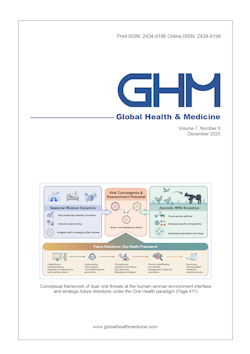Global Health & Medicine 2025;7(2):82-89.
Enhancing health security against infectious diseases: Perspectives on the emergency operations capabilities of the Japan Institute for Health Security
Saito T, Sunagawa T, Suzuki M, Matano T, Wakita T
The Japan Institute for Health Security (JIHS) will be established in April 2025 by merging the National Institute of Infectious Diseases (NIID) and the National Center for Global Health and Medicine (NCGM). JIHS aims to enhance health security against infectious disease crises by integrating NIID's surveillance, epidemiologic investigation, and research expertise with NCGM's clinical care and research capabilities. An effective response to an infectious disease crisis depends on robust intelligence, systematic data analysis, and surge capacity – the ability to rapidly scale responses through mobilization of resources and an established infrastructure. An Emergency Operations Center (EOC), which centralizes emergency response coordination, is critical to harmonizing these diverse capabilities, enabling technical experts to focus effectively on specialized tasks. NIID has contributed to disease prevention through surveillance, laboratory reference services, and devising medical countermeasures. The establishment of NIID's Center for Emergency Preparedness and Response (CEPR) in 2020 and the EOC in 2021 markedly improved crisis management in the NIID, as demonstrated during events like Tokyo 2020 and the SARS-CoV-2 Omicron variant outbreak. These experiences highlight the importance of centralized coordination, which is being incorporated in the operational framework of the newly established JIHS. This article reviews NIID EOC's evolution and its crucial role in enhancing Japan's health security by consolidating lessons learned from recent public health crises.
DOI: 10.35772/ghm.2025.01030







